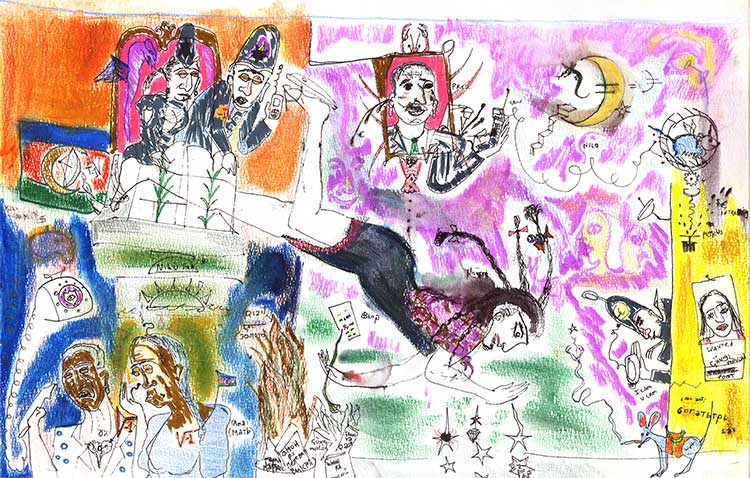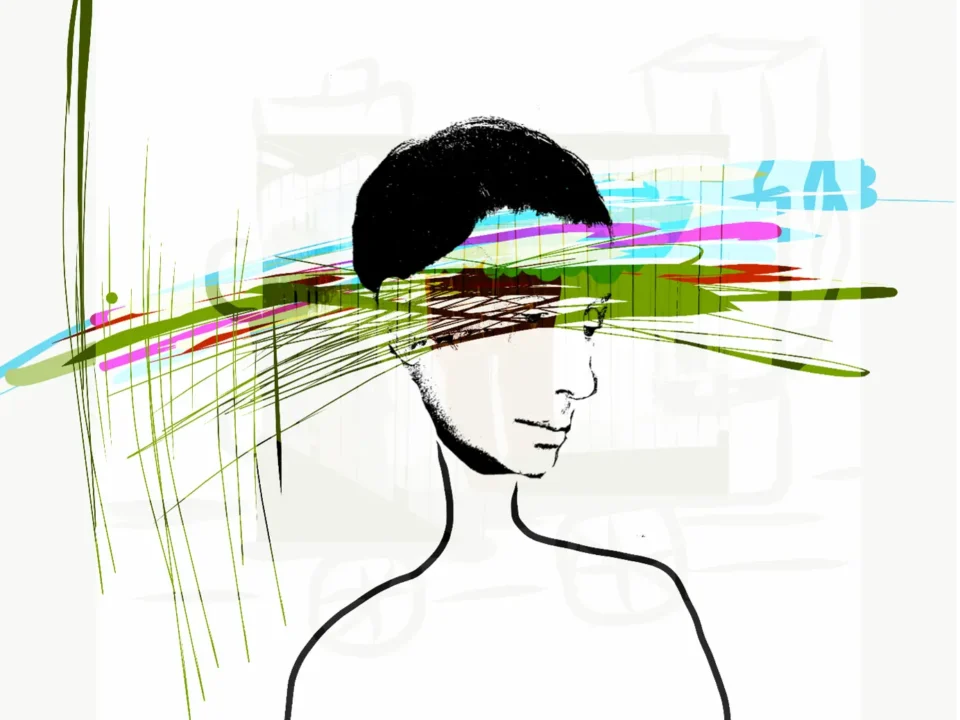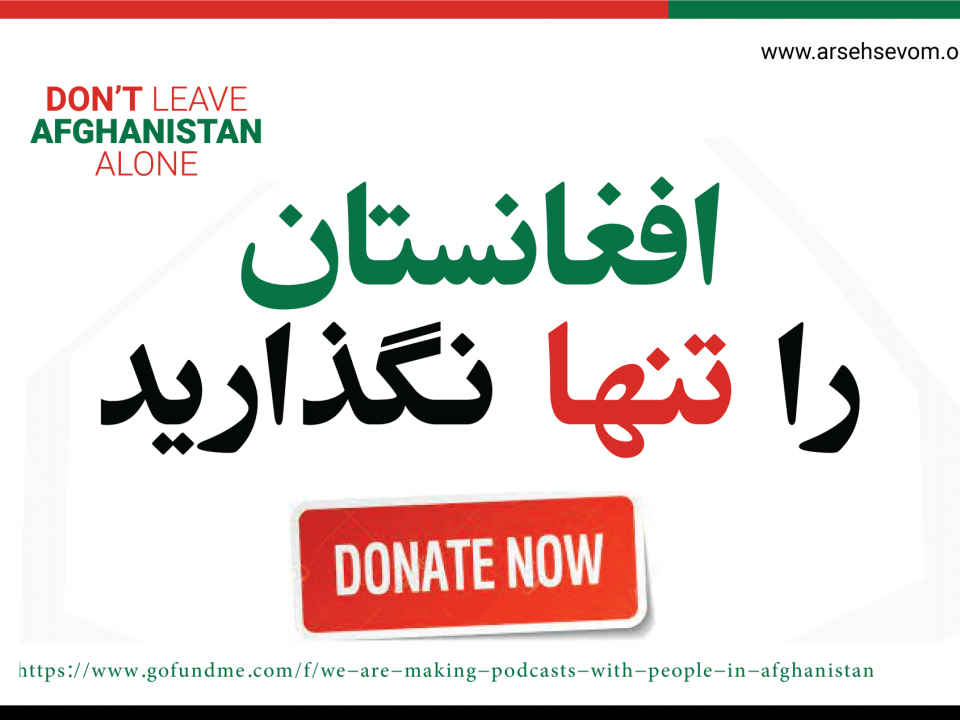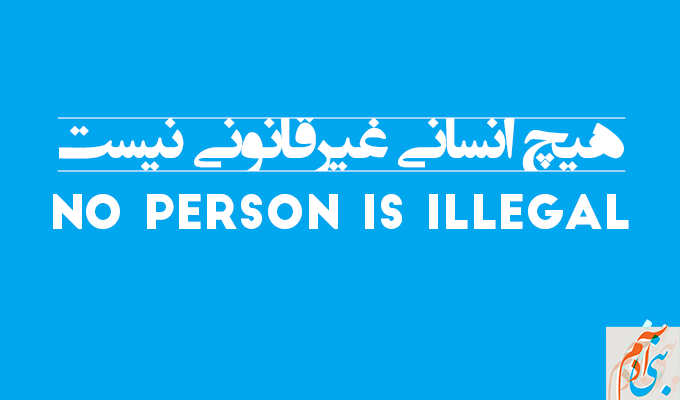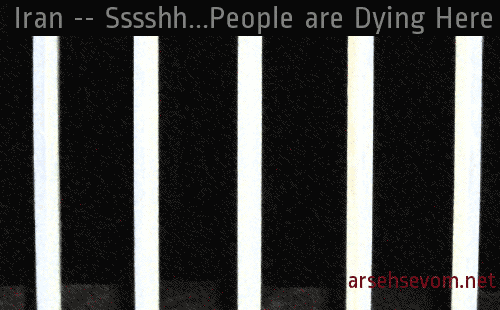
#Iran — Ssshh…People are Dying Here
November 6, 2013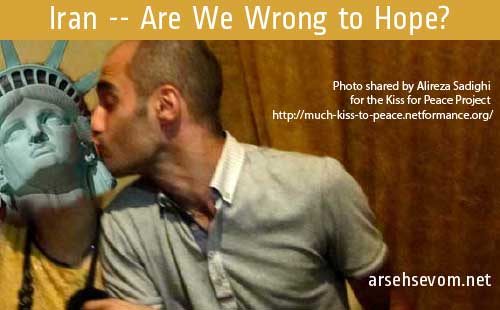
#Iran — Are We Wrong to Hope?
November 11, 2013Arseh Sevom–In part two of Arturo Desimone’s interview with the civil society activist “O” in Azerbaijan, we read about the struggles to create capacity for critically analyzing the actions taken by the government. When discussing the mass demolitions of homes by the government, for example, O says, “But in order for the people to be able to have different political opinions about it, we need to provide a higher level of literacy…” Critical thinking is neccessary in order to re-establish civil society in Azerbaijan. Education, O, argues is something that cannot be left to the government. Like magicians, the government of Azerbaijan tries to distract the attention of its citizens by sentimentalizing political thought and action. “I think we have to start now with realism,” O states, “actually depicting the sufferings as they are, in their immense intensity and contrast, in all their extreme dimensions.” This piece originally appeared on Open Democracy and is reprinted with permission. Read part one here.
by Arturo Desimone
Faith in Miracles and Magicians
AD: So what is happening now in Azerbaijan?
O: What is now happening in our country is very similar to what is happening in other countries in the world. Our government will say that we are always different, that we are isolated. The official propaganda speaks of the miracle of our development. We are unique and must have faith in the miracles of the magicians in the winter palace built over the houses of starving people.
Loyalty Shown Via Bombastic Monuments
AD: What is the relationship of your regime to Erdogan’s party?
O: Erdoganism is at once both friendly towards and critical of this establishment. Critical, since our bureaucrats and leaders are Russified; they are secular oppressors who were educated in the Soviet Union and speak Russian well. Erdogan of course is a populist leader elected by a majority and officially concerned with religion and identity. In fact Erdoganism has led to a revival of Ottomanism in Turkey. But beyond these important differences, Erdogan’s party and Aliyiev’s regime are allies.
I mentioned the mass demolitions of houses built in the 80s by people from the countryside who migrated to Baku’s city center to cobble them together in an amateurish fashion. After the merciless demolition of the houses by tractors and bulldozers while the people were still inside, they built a huge parking lot and buildings in the Napoleonic Imperial Style. Who does this remind you of? Try googling: ‘Baku Four Seasons Hotel’ or ‘Baku City Center’ and you will see the Napoleonic building style, the imperial architecture. The officials build white elephant projects trying to show off their loyalty by using marble in bombastic monuments. This is a way to gain legitimacy and favoritism from the government – as if anything looking cheaper in the streets would ”delegitimize the government.” Given the lack of public accountability, they simply get away with it.
We Are Trying to Re-establish Civil Society
AD: What about teaching people an understanding of economics?
O: We are trying to create a civil society in Azerbajan – better, to re-establish one, where people read and discuss politics, and can have different political affiliations. But the government doesn’t want people to see what takes the burden for this “miracle.”’
AD: What takes the burden?
O: Right now, I would say oil is taking the burden. But the oil is draining away fast, and pretty soon people will be feeling the forceful burden crushing them. We have no other resources.
Criticism Requires Literacy
AD: What exactly do you mean when you say that in such a society students and youth are unable to think?
O: The official university systems are fraudulent and corrupt: people are encouraged to hope that they will become civil servants or work in offices and somehow be a part of this economic miracle in the form of petroleum-money favoritism. This will go nowhere for them, but they want to buy into consumer culture, to buy cars or go four times a week to the brothels.
As things stand, the average Azeri student reading about such events as the house demolition cannot understand it. He cannot reach any conclusion other than that it is certainly unjust and terrible. It is terrible, he will rationalize, but probably necessary, believing that we must need more parking lots, more open spaces with monuments. This is what I mean when I say they cannot think: a high level of literacy is necessary in order to really understand. Here a right winger could argue, “This is a total violation of the rights of property law, of the rights of the people living there and their legal owners!”
A leftist then would say, “This is basically what Moliere said about the demolition of parts of Paris during the construction of the avenues!”
But in order for the people to be able to have different political opinions about it, we need to provide a higher level of literacy—from an underground movement.
Starting with Realism
AD: It seems you have dedicated your life to this…
It would be an exaggeration to say that. I am not doing that much. But I can say this is what I consider important to invest our time and effort in. I see this type of action as promising. I would like to think that I was involved in a form of Enlightenment that avoids Foucault’s criticism of it – Foucault saw in the Enlightenment a rationality the government imposes to run its biopolitics.
But if you return to the eighteenth century enlightenment, I can defend myself here by saying that there are two phases. In the early phase, it is pure. This “purer” phase is what was used to liberate people from the claws of not being able to criticize, not being able to think, which resulted in Europe in universal education. You could argue that this was really the struggle of the working-class in Europe…. Then you have the second phase where it can become corrupt and used to establish the early mode of capitalist production.
AD: Do you worry that if you say ‘enlightenment’ you will be accused by Western intellectuals of a use that is white and Eurocentric?
O: In fact I would not deny that it is Eurocentric. But it is something universal first of all, more than Western. The accusation I more often hear, is, “Hey dude, we have passed the age of Enlightenment long ago, and we are now in the postmodern age!” Which seems rather stupid, because if the cultural development of your society has not yet reached its modern age, then you cannot have a criticism of modernity. You cannot build a culture in Azerbaijan based on a criticism of European Enlightenment and European modernity. I think we have to start now with realism, actually depicting the sufferings as they are, in their immense intensity and contrast, in all their extreme dimensions.
Food for Prisoners
AD: So what can you tell me about the actions you take?
O: For example, there is a network of people who are providing food for prisoners.
AD: How does the food get smuggled in?
O: It is not really smuggling. The law allows us to take it in. However, some police at the gates create difficulties, while others do not. It depends on the person usually (if an order from above concerning the food intake into the prison is not issued, then it is solely dependent on the soul of the prison guards. Many of them deliver the food in a secretive manner too, supporting the guys inside). To take one package of food to a prisoner that will suffice for two days costs more than 50 euros. It is very expensive; imagine every week forty packages going in there.
AD: How do you raise all that money?
O: People donate. Lately it has become tricky: the government passed a law that donating to such funds is illegal and they have already started harassing several NGOs for that. People make the meals at home – usually mothers. Bringing food to the prisoners is not forbidden by law, but the guards, the police bully people at the gates anyway. In one of the protests against the deaths of young soldiers in the army, twenty people were arrested. They were taken to court, each fined around 1000 euros. We organized a public campaign raising money to pay the fines…and in two days we had collected enough to pay all the fines! The government got frustrated and increased the fines tenfold.
Anarchists, Communists, Liberals
AD: Would you say there are serious divides between communists and anarchists in your movement?
O: We have anarchists, communists, liberals. At this moment we are still developing ourselves, reading, discussing in teahouses – so maybe in ten or twenty years we will have these kinds of divisions. We have some serious anarchists, communists, and the rest are mostly teenagers, often populists.
The Politics of Sentimentality
AD: Hopefully you will never have the sectarian divides that exist in the European left! Today everywhere there is populism—in Latin America they think it is socialism, in the Arab countries Islamist populism took over. What do you think of populism rising in the world and what is its relation to an enlightenment of the kind that you call for?
O: This government also uses populism, it promises the people a great deal, it tries to get at their heart-strings preaching traditional values, sentimentality. It appeals to the people all the time with all these puffy words, appealing to their tradition and the conservation of it. The government presents itself as a social welfare state, taking care of everybody in the society. You can definitely see some of the traits of populism clearly emerging.
Populism without Democracy
Even if there is no democracy in the sense of free elections, populism of this kind is invoked to gain legitimacy from the masses. It is the main enemy to understanding. Not that I view all populism as the enemy. I support populism in the mechanical sense: the majority of the people wanting certain things, expressing this through elections.
Thought as a Commodity
But you can see still see some connection between this type of populism and global capitalism in its unification of things. Liberals say, “Let the market diversify everything.” On the other hand the market does not diversify, it attempts a unification of everything, on the level of people and commodities. The unification works for them. It lowers transaction costs for business if everyone thinks the same way. It allows for a better consumer culture, acceptance of more skyscrapers.
Actually I think the Occupy movement played a role in opposing this capitalism. But dialectically Occupy was powerless. We need to bring forth a new form of resistance against capitalism, and this dispersed form of resistance will not work.
Our Struggle
I can see the need for a new form of resistance already in Azerbaijan. Our struggle is not that of a classic working class – we have no class of people that Marx would call ”proletariat,” our struggle is not the classic working class struggle of trade unionists, what we have here is more a “periphery capitalism.”
Our method of resisting is a new form, a more flexible, network-based underground, the type of resistance that can even seem to break up and disappear under an umbrella. In a way our resistance is in a leftist spirit. I find it hard to express myself on this. But the challenge for us around the world is to think of the new ways in which to resist global capitalism.


